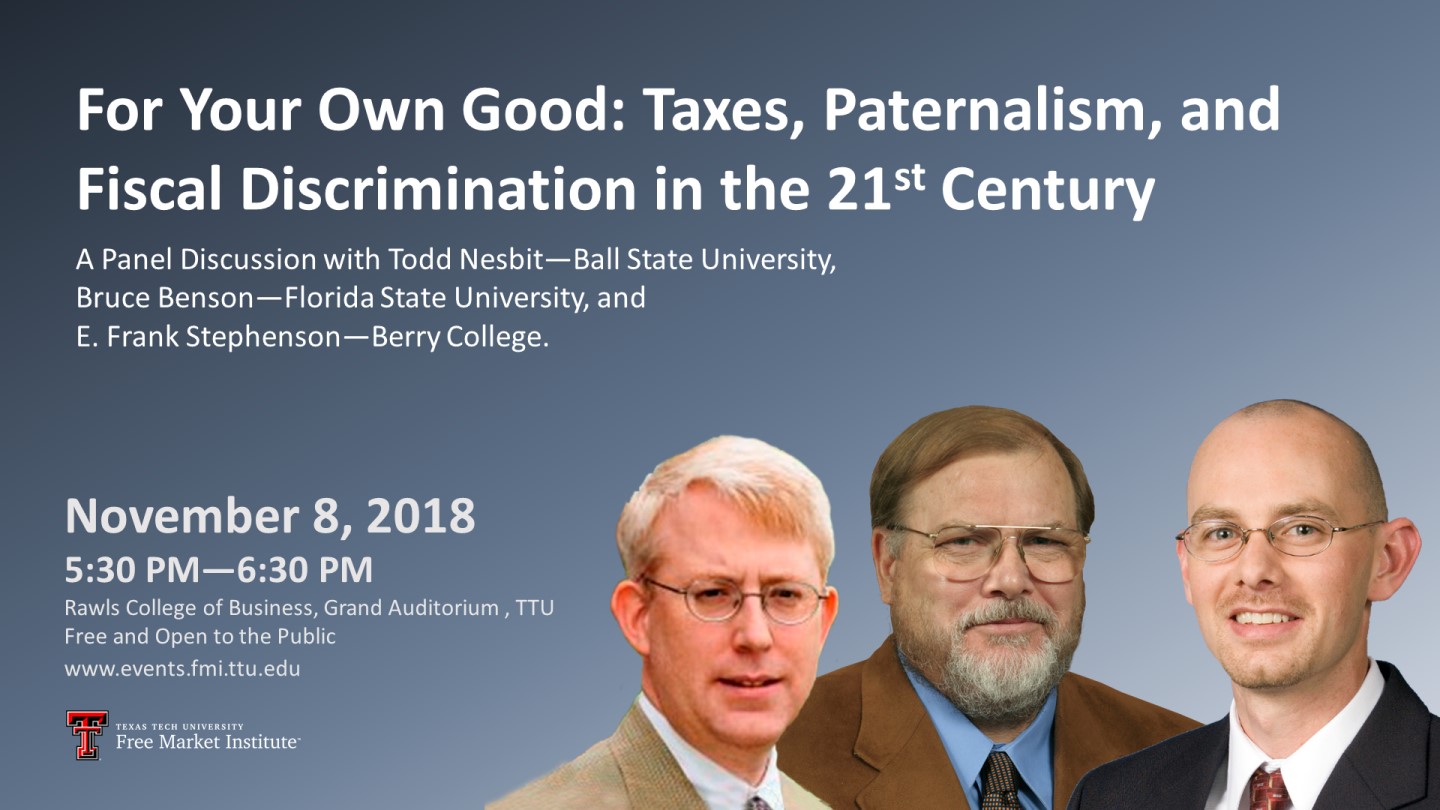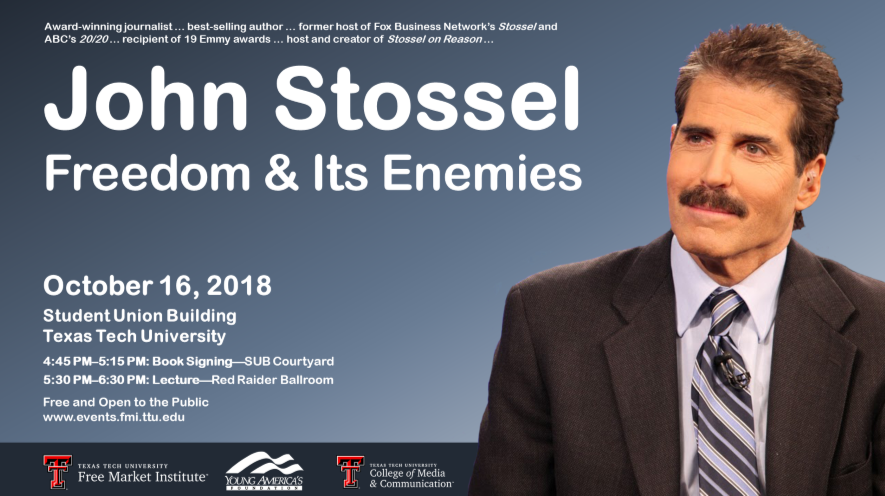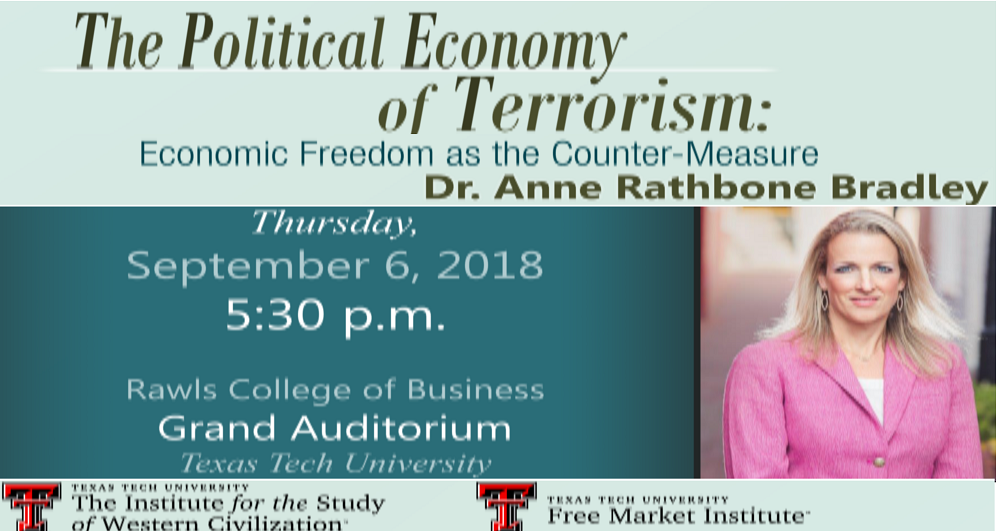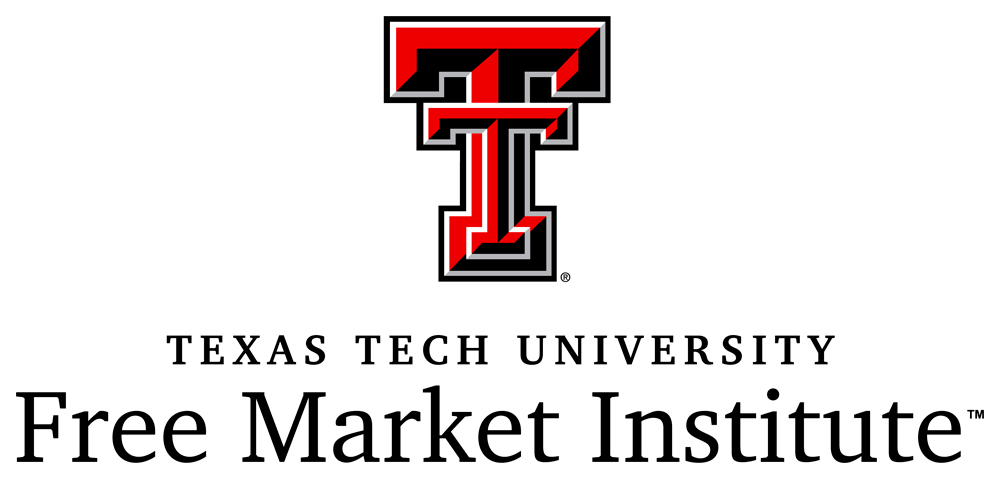Event Archives
FMI Public Speaker Series
October 16 — Freedom and Its Enemies
September 6 — The Political Economy of Terrorism: Economic Freedom as the Counter-Measure
April 19 — Tomorrow 3.0: Selling Lower Transaction Cost and Commodifying Excess Capacity
March 1 — How We Got Rich — Not What You Think
February 9-10 — Topics in Criminal [In]Justice & Self-Governance
Panel Discussion — For Your Own Good: Taxes, Paternalism, and Fiscal Discrimination in the Twenty-First Century — November 8

Taxing “sin” is one of the oldest and most persistent forms of selective taxation. Founding Father and Treasury Secretary Alexander Hamilton is said to have imposed a tax on whiskey “before the ink on the US Constitution was dry.” Motivated as much by a need to increase revenues as by a desire to do good, politicians often claim that “sin taxes” will fund projects that promote public health as well as curb unhealthy behavior. Yet sin taxes often represent inefficient public policy and may lead to a host of ill effects and unintended consequences that fail to improve public health and disproportionately hurt the poor.
The panel discussion featured remarks from Todd Nesbit (Ball State University), Bruce Benson (Florida State University) and E. Frank Stephenson (Berry College), all of whom contributed original, scholarly research to the edited volume, For Your Own Good: Taxes, Paternalism, and Fiscal Discrimination in the 21st Century. The panelists provided an overview of the themes of the collected volume as well as discussion of their specific contributions to it.
Freedom & Its Enemies — October 16

After 19 Emmys as a consumer reporter criticizing businesses, John Stossel realized that competition protects consumers pretty well. He was reporting on the exceptions and even these tended to get weeded out or minimized by competition. The biggest threat to consumers, and everyone, he concluded, is too many rules and too much power in the hands of a government that doesn't face the same competitive pressure as firms do in the marketplace. He discussed his intellectual journey as a reporter and the future of freedom and its enemies in the United States for the FMI's Fall 2018 Public Speaker Series keynote lecture.
The Political Economy of Terrorism: Economic Freedom as the Counter-Measure — September 6

The September 11, 2001 attacks made Americans feel more vulnerable than had any event since Pearl Harbor. Policymakers rushed to launch a "War on Terror," which has proven to be a war without end. Dr. Bradley's remarks examined al-Qaeda as a case study in modern terrorism from a rational choice, comparative institutional perspective. Seeing terrorist activity through this lens allows us to capture both the demand and supply sides of its "market," a perspective that can illuminate dimensions of international terrorism that often escape more conventional analyses, and offer some novel and promising counterstrategies.
Tomorrow 3.0: Selling Lower Transaction Cost and Commodifying Excess Capacity — April 19
"Right now, we own stuff. I do, you do, the people across the street who can't get their car in the garage do...we own a ton of stuff. The self-storage industry in the United States has nearly fifty thousand facilities, with more than 15 billion cubic feet of space cluttered with...stuff. But people don't fundamentally want stuff. What they want is the stream of services that stuff provides over time. So if people own stuff—clothes, tools, cars, houses—rather than rent that stuff, it is because owning secures services more reliably and at lower transaction costs than renting. But this "preference" for owning is not real. It might change quickly if entrepreneurs were able to figure out a way to sell reductions in transaction costs...The future will look very different from the past and the present because in the future entrepreneurs will have figured out how to sell reductions in transaction costs. Almost everything we own will soon be a potential rental item, or we won't own it all because we'll rent it from someone else." (Excerpted from 'Tomorrow 3.0 The Sharing Economy', The Independent Review, Vol. 20, No. 3).
To learn more about Professor Munger's research on this subject, check out his recent book, Tomorrow 3.0: Transaction Costs and the Sharing Economy.
How We Got Rich — Not What You Think — March 1
There's little doubt that most humans today are better off than their forebears. Stunningly so, according to economist and historian, Deirdre McCloskey. Even the poorest of humanity will soon be joining the comparative riches of Japan and Sweden and Botswana.
Why? Most economists—from Adam Smith and Karl Marx to Thomas Piketty—say the Great Enrichment since 1800 came from accumulated capital. McCloskey disagrees, fiercely. "Our riches," she argues, "were made not by piling brick on brick, bank balance on bank balance, but by piling idea on idea." Capital was necessary, but so was the presence of oxygen. It was ideas, not matter, that drove "trade-tested betterment." Nor were institutions the drivers.
To learn more about Professor McCloskey's research on this subject, check out her books, "The Bourgeois Era" trilogy.
Topics in Criminal [In]Justice & Self-Governance — February 9-10
![Topics in Criminal [In]Justice & Self-Governance](/freemarketinstitute/events/images/ihs_seminar_20180209.png)
The Free Market Institute at Texas Tech University (FMI) and the Institute for Humane Studies at George Mason University (IHS) co-hosted an IHS On-Campus Education Program as part of the Weekend Exploring Liberty series. The Seminar included a weekend of speaker sessions related to Topics in Criminal (In)Justice and Self-Governance on Friday, February 9th through Saturday, February 10th in the Jerry S. Rawls College of Business Administration at Texas Tech University.
Program Sessions and Speakers
-
- The Rise of Prison Gangs in California — David Skarbek, Ph.D.
- Cartel Federalism and Mass Incarceration — Daniel D'Amico, Ph.D.
- The Unintended Consequences of Drug Prohibition — Audrey Redford, Ph.D.
- Cash for Convictions and Other Sad Tales of Forensic 'Unscience' — Roger Koppl, Ph.D.
- Why Prison Social Order Varies Around the World — David Skarbek, Ph.D.
With over 2 million people currently incarcerated throughout the country, how have drug prohibitions, "cash for convictions", and the rise of the prison gang culture contributed to such a staggering number? This weekend seminar explored these difficult topics surrounding mass incarceration and the criminal justice system.
[Back to Upcoming Events] [Back to Top]

Free Market Institute
-
Address
Texas Tech University - Box 45059 - Lubbock, TX - 79409-5059 -
Phone
806.742.7138 -
Email
free.market@ttu.edu
